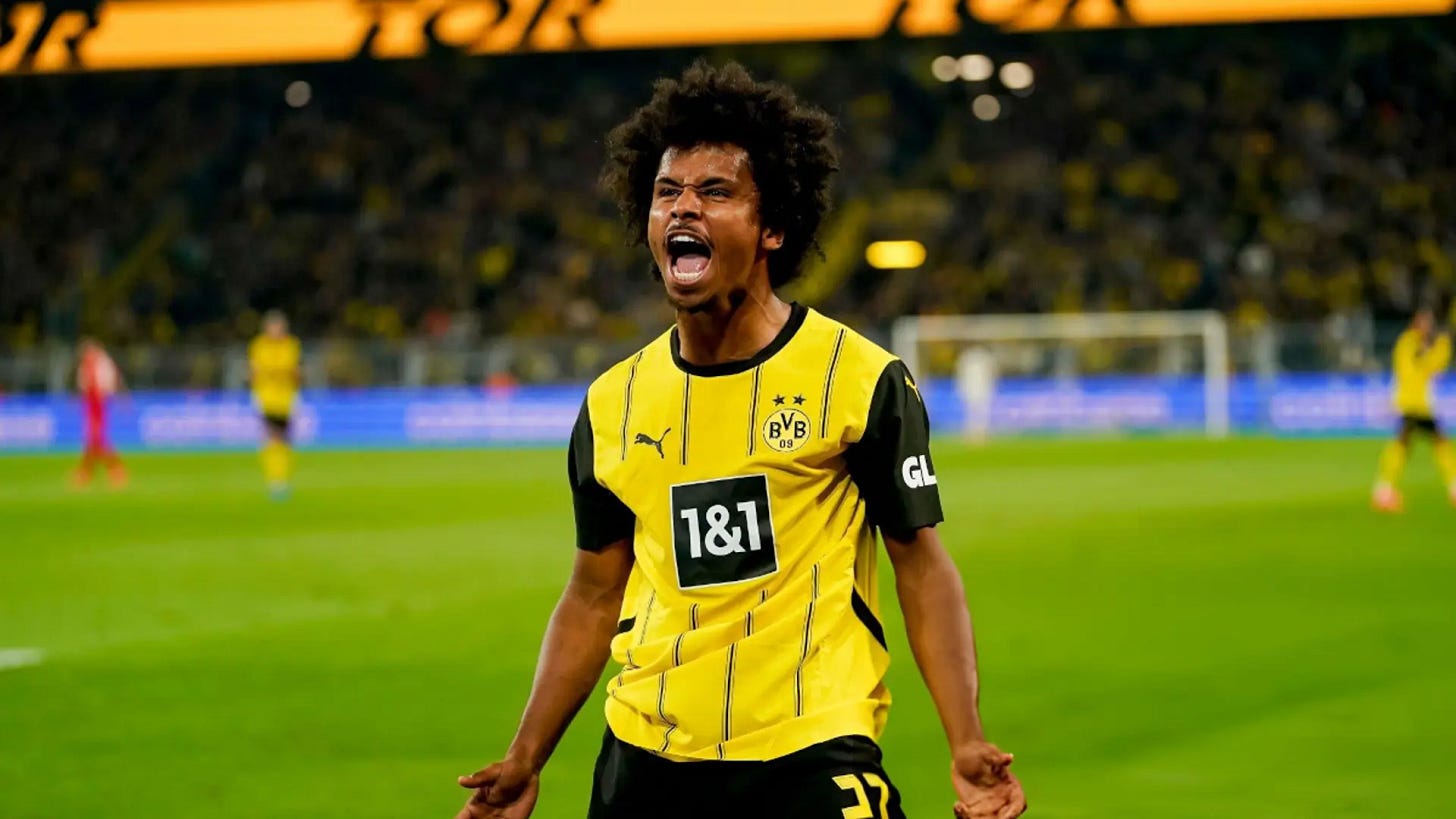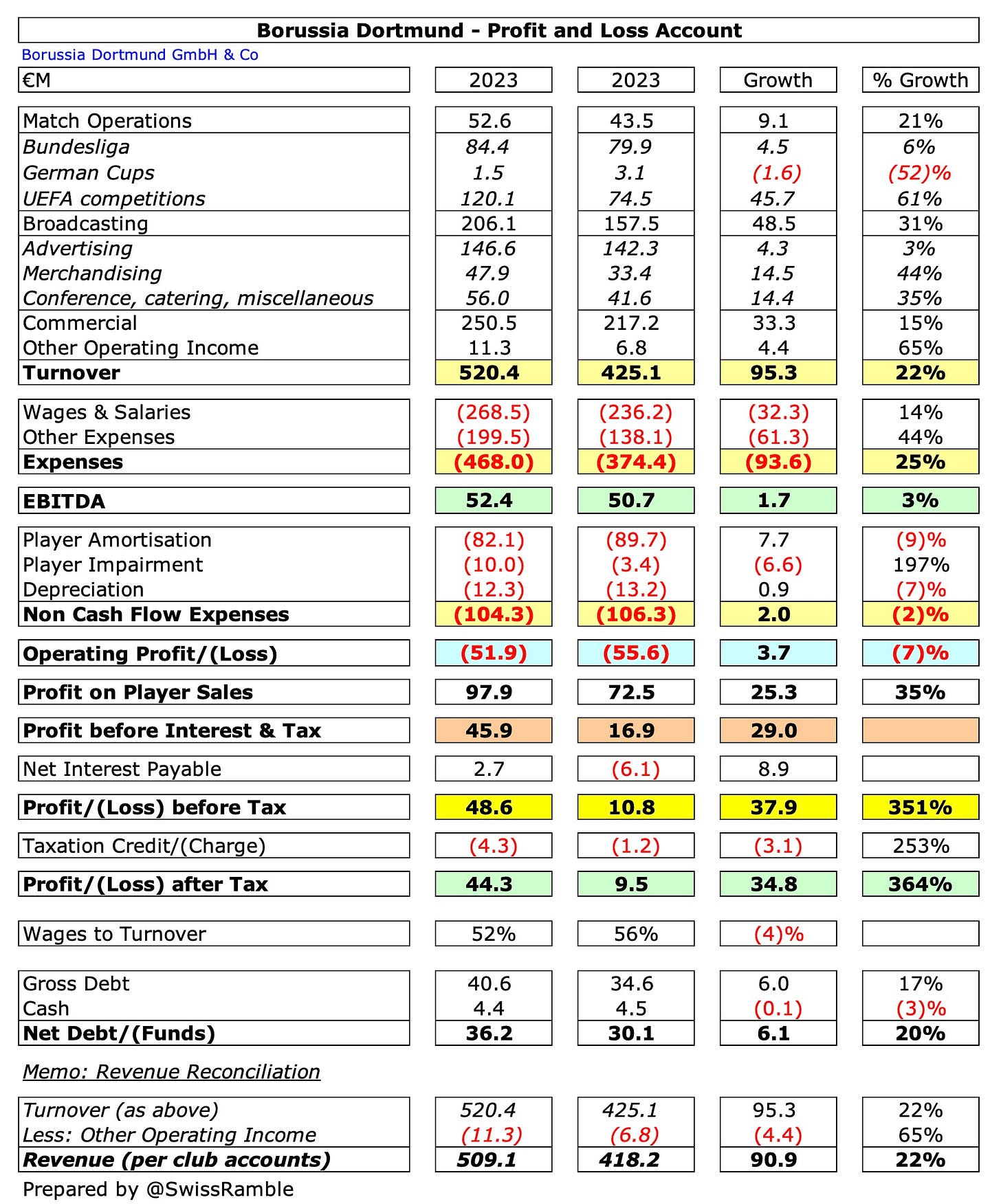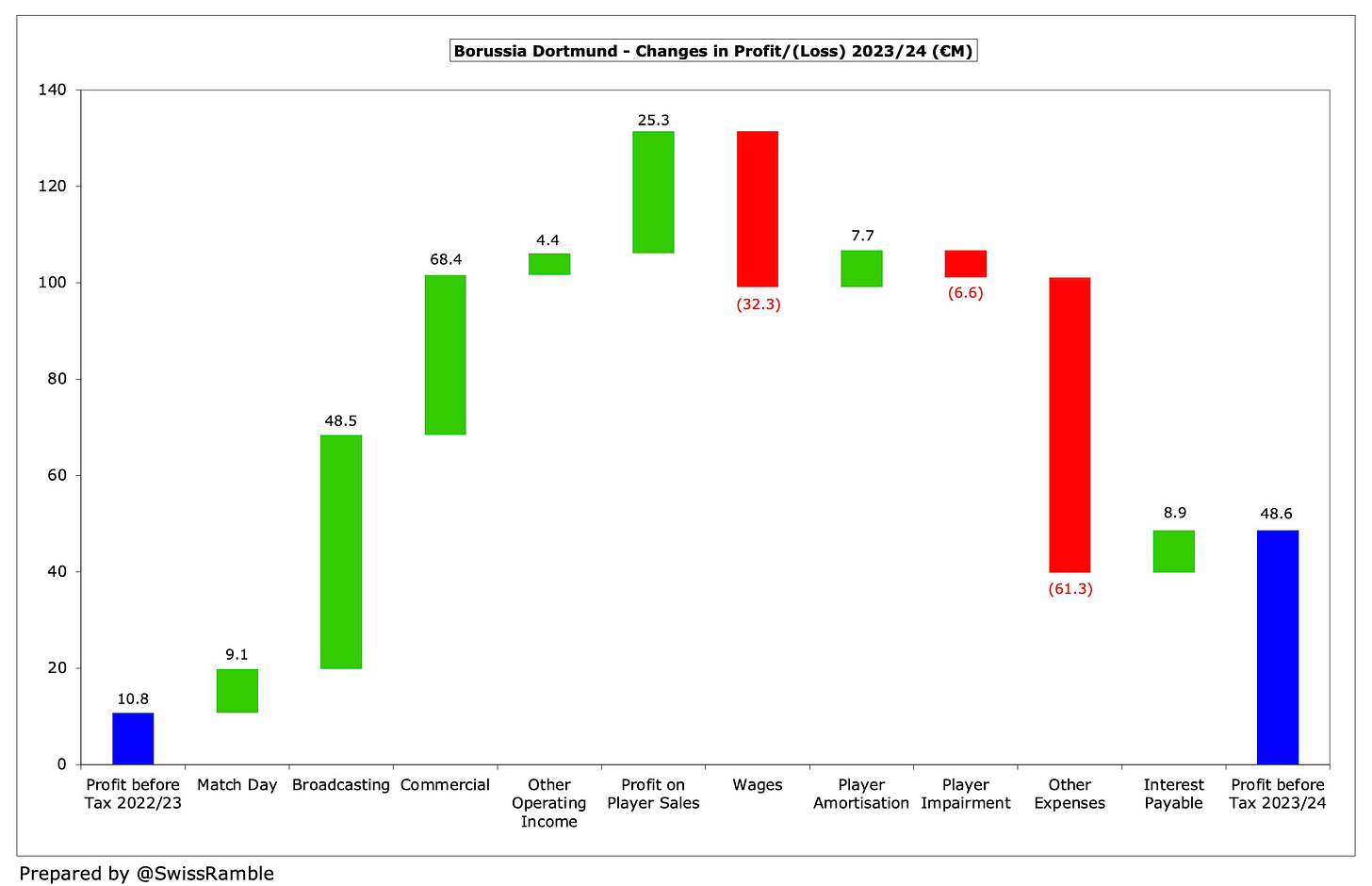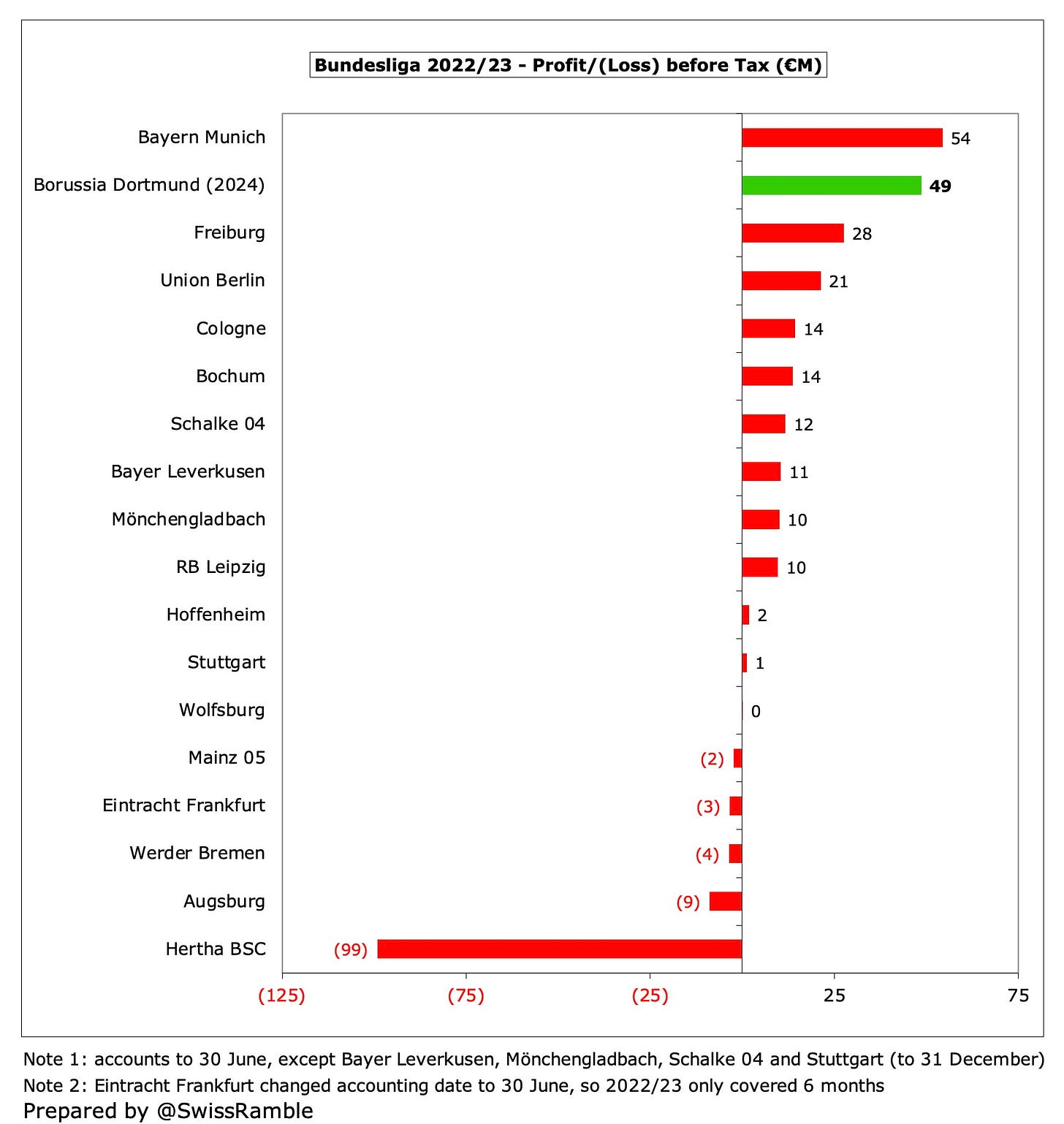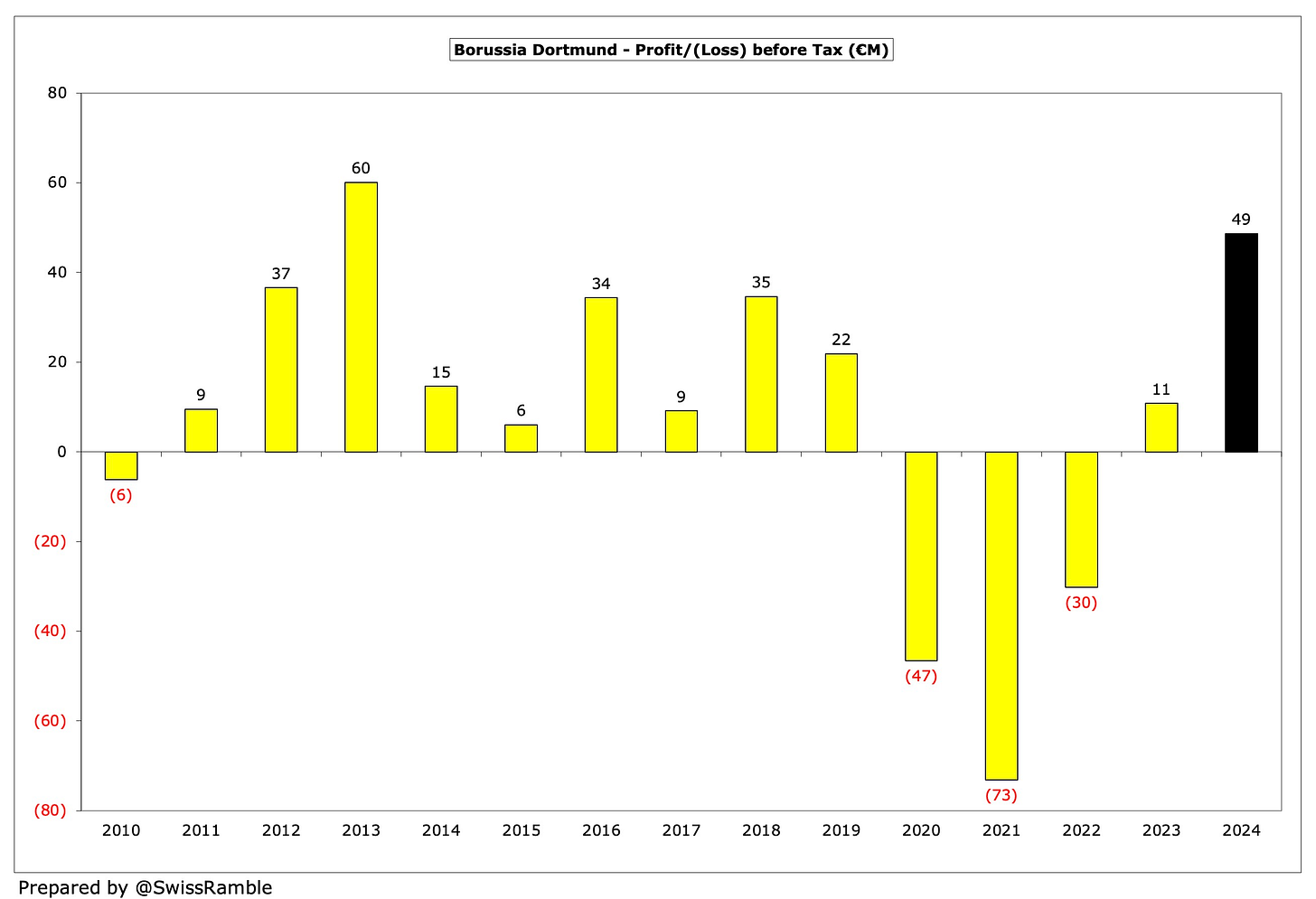Borussia Dortmund’s board understandably described the 2023/24 season as having “many highs and lows”.
On the one hand, they finished fifth in the Bundesliga, which was the club’s worst performance since 2014/15 and “fell short of our own expectations”. They also crashed out of the DFB Cup in the last 16.
On the other hand, “making it to the Champions League final restored our pride and underscored Dortmund’s place among Europe’s elite clubs.”
Chief executive, Hans-Joachim Watzke summed up the feelings of most supporters, “Unfortunately, we can’t seem to be successful in Europe and in the Bundesliga in the same campaign.”
Head coach Edin Terzic left the club at the end of the season, replaced by assistant manager Nuri Sahin. The Turkish international had also played for Dortmund in two separate spells.
Profit/(Loss) 2023/24
From a financial perspective, 2023/24 was “an exceptionally successful year”, as pre-tax profit more than quadrupled from €11m to €49m (€44m after tax).
Revenue shot up €95m (22%) from €425m to €520m, a new club record and the first time that Dortmund have broken through the €500m barrier. This was further boosted by profit from player sales also increasing by €25m (35%) from €73m to €98m.
This was partially offset by significant growth in operating expenses, which rose €92m (19%) to €572m. However, interest swung from €6m payable to €3m receivable.
The club said that it was “particularly satisfying” that growth was achieved in all revenue streams, driven by the successful Champions League campaign, setting new highs across the board.
Broadcasting was the star of the show, rising €49m (31%) from €157m to €206m, though commercial also significantly increased by €33m (15%) from €217m to €250m. Match operations was up €9m (21%) from €44m to €53m.
In addition, other operating income rose €4m (65%) from €7m to €11m.
As a technical aside, Dortmund’s definition of revenue, which excludes other operating income, rose a very impressive €91m (22%) from €418m to €509m.
Dortmund’s wage bill increased by €33m (14%) from €236m to €269m, another club record. In contrast, player amortisation fell €8m (9%) from €90m to €82m, though player impairment was up €7m from €3m to €10m.
There was also notable growth in other expenses, which rose €61m (44%) from €138m to €199m, mainly due to the higher costs associated with their European exploits.
Dortmund are the first German club to publish accounts for the 2023/24 season, so all the comparatives against their Bundesliga rivals will be based on 2022/23 figures.
On this basis, Dortmund’s €49m pre-tax profit would only have been surpassed by Bayern Munich’s €54m profit in 2022/23.
Unlike many other leading leagues, German clubs very largely operate sustainably with no fewer than 13 of the 18 Bundesliga clubs posting a profit. The losses at four of the other five clubs were less than €10m with the outlier being Hertha BSC with a massive €99m deficit.
Profit/(Loss) Trend
Dortmund have now posted profits two years in a row, so they are back to “business as usual”, having been profitable for nine consecutive years before COVID struck, generating an impressive €227m between 2011 and 2019.
The club was hit hard by COVID, which led to three consecutive losses, adding up to €150m. The board admitted that this “put our business model to the test”, but they appear to have full recovered since that bleak period,
Indeed, they expect another net profit this season of between €5m and €15m.
Keep reading with a 7-day free trial
Subscribe to The Swiss Ramble to keep reading this post and get 7 days of free access to the full post archives.




